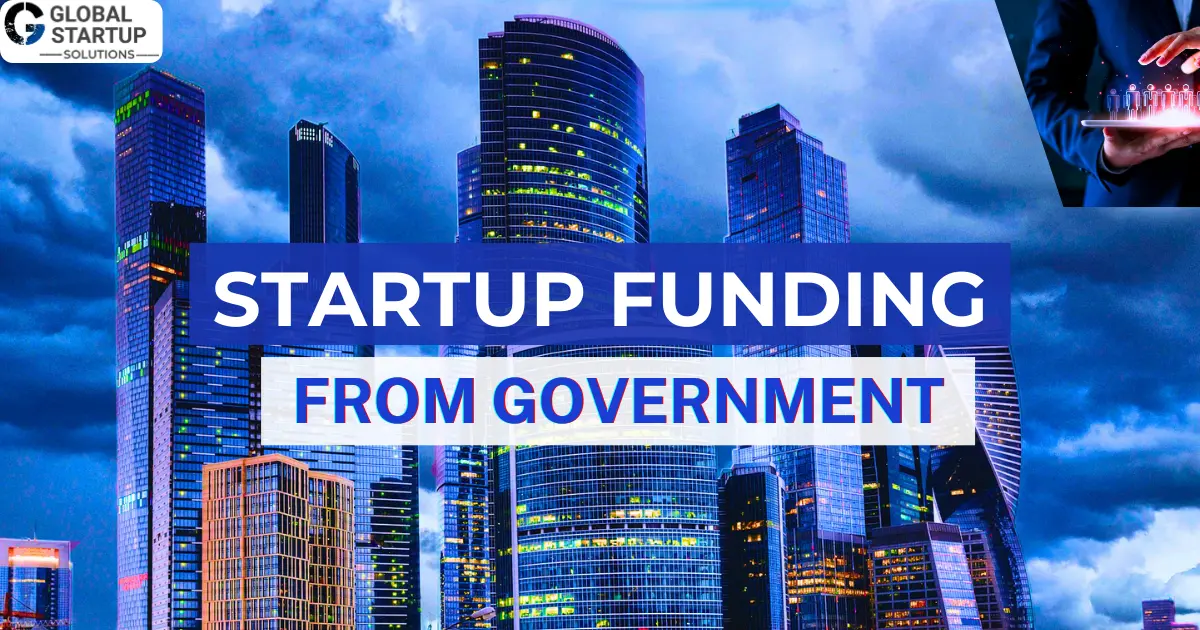Introduction
Dear Friends, If you are Starting a new business, it’s amazing journey but it needs a lot of money to change your ideas into successful business. For many entrepreneurs, getting this funding is the biggest challenge for new startups. This is where government funding programs are important. In India, the government has launched lots of schemes and initiatives to support startups and provide the much needed financial support to help them grow and succeed.
These government programs are designed to boost innovation, support new businesses and boost the economy by creating jobs and promoting entrepreneurship. Knowing about these schemes and how to apply for them can be a game changer for your business startup. This article will guide you through the various government funding options available in India and how you can use them for your business.
How to Get Funding for Your Startup from the Government?
Government funding is a most important source for startups, providing financial help to get started new businesses and running and growing. This type of funding is easy to access than private investments and comes with lots of benefits specifically to entrepreneurship and innovation. Government funds can take the financial responsibility of startups, so entrepreneurs can focus on growing their business other than worrying about cash flows.
Types of Government Funding:
- Grants: Grants are source of funds given by the government that don’t need to be repaid in future. They are often awarded based on criteria such as innovation, job creation or social welfare. Grants are highly needed because they provide financial help without the obligation to repay. However, they usually require a detailed application process and can be competitive.
- Loans: Government-backed loans offer financial help with better terms than regular bank loans. Basically these loans comes with lower interest rates, longer repayment periods and simple eligibility requirements. They are designed to help startups manage their cash flow and grow up.
- Equity Investment: In some cases, the government may invest directly in startups by buying equity (ownership shares) in the business. This type of funding involves a partnership where the government provides capital in exchange for a stake in the business. This can be good as it not only provides funding but also open ways to valuable networks and resources.
- Subsidies: Subsidies are financial aid to reduce the cost of certain expenses such as research and development, production or technology adoption. These funds can help reduce operational costs and make it more affordable for startups to implement new technologies or processes.
Understanding these types of government funding and their importance can help startups make informed decisions about which options match with their needs and goals.
Government Schemes for Startups in India
When looking for funding from government in India for your startup, there are many government schemes that can help. These are for entrepreneurs at different stages of their business journey. Here are some of the popular government schemes to support new startups at financial level:
1. Startup India Initiative
Overview and Benefits: Startup India Initiative is the flag-ship program to promote innovation and support startups all over India. It offers tax discharge, easy compliance and funding opportunities. It aims to create a startup friendly environment by simplifying the regulatory process and offering various incentives.
Eligibility Criteria: The business should be a private limited company for eligible, partnership or limited liability partnership. The startup should be less than 10 years old and annual turn-over should not be more than ₹100 crore. The startup should be working on products and services that are innovative or guided by technology.
Application Process: Applying for the application, startups need to register on Startup India portal. After registration, you need to submit your detailed business plan and other required documents. Once your application approved, you will get access to government subsidies, funding support and networking opportunities.
2. Atal Innovation Mission (AIM)
Overview and Benefits: Atal Innovation Mission objectives to promote innovation and entrepreneurship in India. It provides support through various programs like incubation centers, innovation hubs and funding grants. AIM focuses on building innovation culture among youth and startups and help them grow their ideas into successful businesses.
Eligibility Criteria: Eligibility includes being a registered startup or an institution involved in innovation. The mission supports startups in sectors like technology, manufacturing and healthcare. Specific criteria may vary as per the program or grant applied for.
Application Process: You can easily apply through AIM portal or partner organizations. Application process involves filling online application form, business plan and other required documents. Selected startups will get funding, mentorship and access to innovation labs.
3. Pradhan Mantri Mudra Yojana (PMMY)
Overview and Benefits: Pradhan Mantri Mudra Yojana (PMMY) is government scheme for small businesses and startups. Under this government scheme, businesses can get loans to support their business and grow it. The scheme is to promote entrepreneurship by providing easy and affordable financial support.
Types of Loans under PMMY:
- Shishu: This is good for initial stage startups and can get Up to ₹50,000 funding.
- Kishor: This loans is good for growing businesses and can get funds up to ₹50,000 to ₹5 lakh.
- Tarun: This is good for businesses looking to expand their established businesses and you can get up to funds from ₹5 lakh to ₹10 lakh.
Eligibility Criteria: For Eligibility, A business must need funding and not having a loan from other schemes. The applicant should have a business plan and be able to justify the loan.
Application Process: For applying, you have to visit your nearest bank or financial institution offering PMMY loans. Provide the necessary documents, business plans, id proof and financial statements to the respective bank or institution. The loan application is processed by the bank and after approval the funds are allotted.
4. Credit Guarantee Fund Trust for Micro and Small Enterprises (CGTMSE)
Overview and Benefits: Credit Guarantee Fund Trust for Micro and Small Enterprises (CGTMSE) provides guarantee for loans to micro and small enterprises. This scheme is to facilitate easier access to credit by providing guarantee to lenders, reducing the risk involved in lending to startups.
Eligibility Criteria: The scheme is for micro and small enterprises in India. Business should be registered and should meet the criteria specified by CGTMSE. Business should not have defaulted on any previous loans.
Application Process: To apply, businesses need to approach participating banks or financial institutions. They need to submit a loan application along with necessary documents like business plans and financial statements. The bank will assess the application and on approval, CGTMSE will provide the guarantee.
5. SIDBI Make in India Soft Loan Fund for Micro, Small, and Medium Enterprises (SMILE)
Overview and Benefits: SIDBI Make in India Soft Loan Fund for Micro, Small, and Medium Enterprises (SMILE) is to provide soft loans to small and medium enterprises. It supports business growth by providing loans at concessional rates for manufacturing, service and technology sectors.
Eligibility Criteria: Eligibility is being a micro, small or medium enterprise in India. The enterprise should be in manufacturing or service sector and should meet the financial and operational criteria set by SIDBI.
Application Process: To apply, contact SIDBI or its partner institutions. Prepare and submit an application along with detailed business plan and financial projections. SIDBI will disburse the loan as per the enterprise’s requirement and eligibility.
By using these government schemes you can get funding for your startup from government of India. Each scheme is designed for different stages of business and makes it easier for startups to get the required financial support.
Steps to Apply for Government Funding
Getting government funding for your startup can be a big deal. Here’s a step by step guide to help you follow the process and increase your chances of winning.
1. Research and Identify the Right Scheme
How to Match Your Startup with the Right Scheme Start by researching all the government schemes available for startups. Each scheme has its own objectives, eligibility criteria and benefits. Match your startup’s needs with the scheme’s objectives. For example if you need funding for innovation, Atal Innovation Mission (AIM) might be the one. If you need loans, Pradhan Mantri Mudra Yojana (PMMY) might be the better option. Review the specific requirements and benefits of each scheme to choose the one that fits your startup’s goals and stage.
2. Prepare Required Documents
List of Important Documents Required To apply for government funding you will need to prepare the following documents:
- Business Plan: Detailed description of your business, market analysis and financial projections.
- Proof of Identity: PAN card, Aadhaar card or passport.
- Business Registration Certificate: Proof of legal status and registration of your business.
- Financial Statements: Balance sheets, profit and loss statements and cash flow statements.
- Tax Returns: Recent tax returns to show financial health.
- Project Report: Detailed report of the project or business you want to fund.
3. Make a Good Business Plan
Elements of a Business Plan A business plan is must for funding applications.
3.1. Important Components are:
- Executive Summary: Brief description of your business, mission and objectives.
- Market Analysis: Market size, target audience and competition.
- Business Model: How will your business make money.
- Marketing Strategy: How will you promote and sell your product or service.
- Financial Projections: Revenues, expenses and profitability.
- Management Team: Include your teams and their expertise.
3.2. How to Make Your Business Plan Shine
- Be Simple: Present in a straightforward way.
- Use Facts: Back up your claims with market research and numbers.
- USP: Highlight what’s unique about your business.
- Edit: Error free and professional.
Read More
- Top 10 Best Banks For Startups in 2024
- Top 5 Unique Tech Startup Ideas
- Guide to Starting a Business in 6 Simple Steps
4. Submit your Application
4.1. Step by Step Process
- Fill the Form: Fill the form correctly and completely.
- Attach Documents: Make sure all documents are attached and in order.
- Online or Offline: Follow the submission process of the scheme. Some may be online through their portal while others may accept physical copies.
- Get Acknowledgment: Confirm your application is received and keep a copy of the acknowledgment for your record.
4.2. Common Mistakes to Avoid
- Incomplete Applications: Fill all sections and attach all documents.
- Incorrect Information: Check for errors and inaccuracies.
- Missing Deadlines: Apply before the deadline to avoid disqualification.
- Ignoring Guidelines: Follow the scheme’s rules and guidelines.
5. Follow Up and Monitor
After you apply, it’s crucial to follow up to ensure it’s being processed. This will help address any issues that may arise and keep you updated on your application status.
How to Check Your Application Status?
- Online Portals: Many schemes have online tracking where you can check your application status.
- Contact Person: Reach out to the scheme’s contact person or helpdesk.
- Records: Keep a record of all communications and submissions.
Do this and you’ll get funding for your startup from the government and increase your chances of securing the financial support needed to grow your business.
Conclusion
Government funding can help startups overcome financial hurdles and grow. By knowing and using the various government schemes, you can get the funding you need to turn your business ideas into reality. Take time to explore different funding options, check the eligibility criteria and get guidance from experienced mentors.
Final Tips to Increase Your Chances of Getting Funded
- Be Detailed and Accurate: Make sure all info in your application is accurate.
- Have a Good Business Plan: A good business plan can make a big difference.
- Follow Up: Stay updated on your application status and address any issues ASAP.


